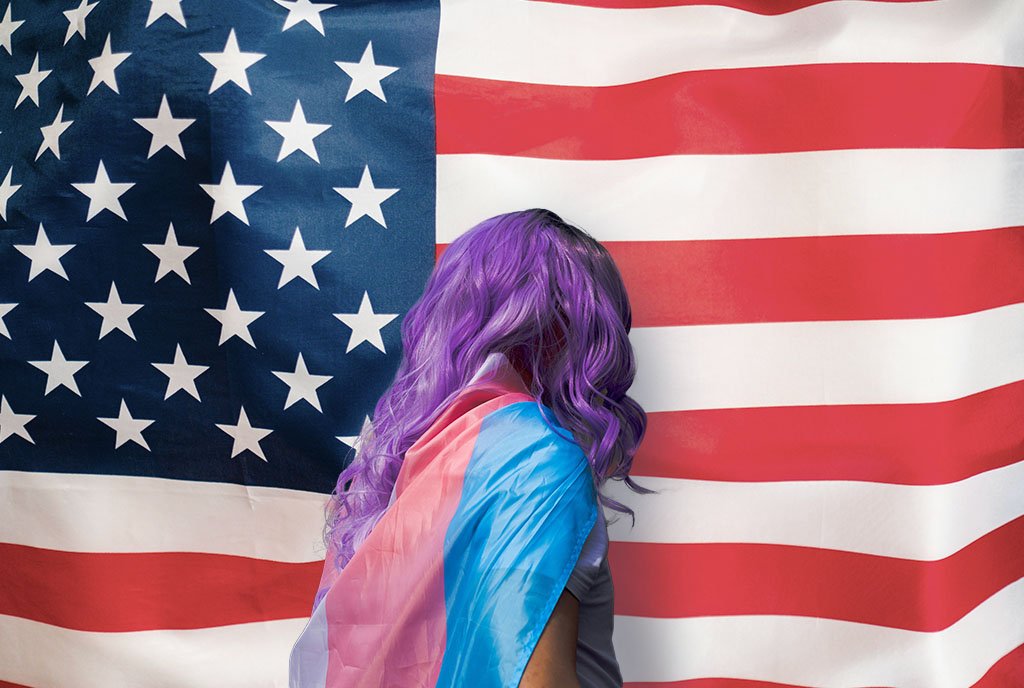
June 15, 2020; Washington Post, New York Times, and Slate
The US Supreme Court must have known that June is Pride Month! In October 2019, when NPQ wrote about the blockbuster opening week of the Supreme Court, there were few hints as to which way the conservative justices might bend on the issue of how to interpret the term “sex” in Title VII of the Civil Rights Act. This was the first LBGTQ case since the retirement of Justice Anthony M. Kennedy, who was often the swing vote on such issues, including on marriage equality.
On Monday, in a surprise 6–3 decision, Justice Neil M. Gorsuch and Chief Justice John G. Roberts Jr. joined the court’s liberals in saying that Title VII of the Civil Rights Act of 1964, which prohibits discrimination “because of sex,” protects LGBTQ employees from dismissals.
The majority opinion in the case of Bostock v. Clayton County, Georgia, was written by Justice Gorsuch, yet another surprise. Writing for the majority, he said:
Today, we must decide whether an employer can fire someone simply for being homosexual or transgender. The answer is clear. An employer who fires an individual for being homosexual or transgender fires that person for traits or actions it would not have questioned in members of a different sex. Sex plays a necessary and undisguisable role in the decision; exactly what Title VII forbids.
[…]
It is impossible to discriminate against a person for being homosexual or transgender without discriminating against that individual based on sex. Consider, for example, an employer with two employees, both of whom are attracted to men. The two individuals are, to the employer’s mind, materially identical in all respects, except that one is a man and the other a woman. If the employer fires the male employee for no reason other than the fact he is attracted to men, the employer discriminates against him for traits or actions it tolerates in his female colleague.
Sign up for our free newsletters
Subscribe to NPQ's newsletters to have our top stories delivered directly to your inbox.
By signing up, you agree to our privacy policy and terms of use, and to receive messages from NPQ and our partners.
Justices Brent Kavanaugh, Clarence Thomas, and Samuel Alito would beg to differ. In their dissent, they say that the majority are amending the law and not interpreting it. Kavanaugh, pointing to a previous case, writes, “The court has previously stated, and I fully agree, that gay and lesbian Americans ‘cannot be treated as social outcasts or as inferior in dignity and worth.’” But he then adds, “Our role is not to make or amend the law. As written, Title VII does not prohibit employment discrimination because of sexual orientation.” This was very much aligned with the arguments made when the cases were laid out in October 2019.
These combined three cases involved two lawsuits from gay men who claimed they were fired because of their sexual orientation and a third suit from a transgender woman who said she was fired when she said she would embrace her gender identity at work. The legal theory at the crux of this case is known as textualism. Sound familiar? It is the theory, most often used to support conservative judicial rulings, that courts should look at the plain text of the law, not the legislative history or the congressional intent.
When Gorsuch applied textualism in a manner that led to a liberal outcome, however, he evoked the fury of some of his fellow conservative justices, particularly Justice Alito, who angrily countered Gorsuch’s interpretation of textualism. He was especially perturbed by Gorsuch’s references to the late Justice Antonin Scalia, whose seat he now holds. He stated in his dissent: “The Court’s opinion is like a pirate ship. It sails under a textualist flag, but what it actually represents is a theory of statutory interpretation that Justice Scalia excoriated—the theory that courts should ‘update’ old statutes so that they better reflect the current values of society.”
According to Mark Joseph Stern, writing for Slate, Alito is wrong, and Gorsuch and Roberts got this one right. In this case, textualism would have left the conservative justices hanging onto something that would lead to a liberal outcome, which they did not want. Kavanaugh, who argued that this was really something that should be left to Congress, but sided with the two conservatives, still congratulated the LGBTQ community on a victory he thought they should have been denied. For this, both Gorsuch and Kavanaugh are feeling the backlash of the conservative community who worked long and hard to make sure they were both confirmed to the Supreme Court. These are, indeed, strange times.
For the LGBTQ community and their supporters, this was a decision that brought great joy and hope. Following a week when rules and regulations that prevent discrimination in transgender health care were canceled, the Supreme Court has upheld that Title VII of the Civil Rights Act includes protections for LGBTQ employees when it states that an employer may not discriminate based on sex.
James Esseks, director of the ACLU’s LGBTQ & HIV Project, says, “Our work is not done. There are still alarming gaps in federal civil rights laws that leave people—particularly Black and Brown LGBTQ people—open to discrimination in businesses open to the public and taxpayer-funded programs. Congress must affirm today’s decision and update our laws to ensure comprehensive and explicit protections for LGBTQ people and all people who face discrimination.”—Carole Levine












